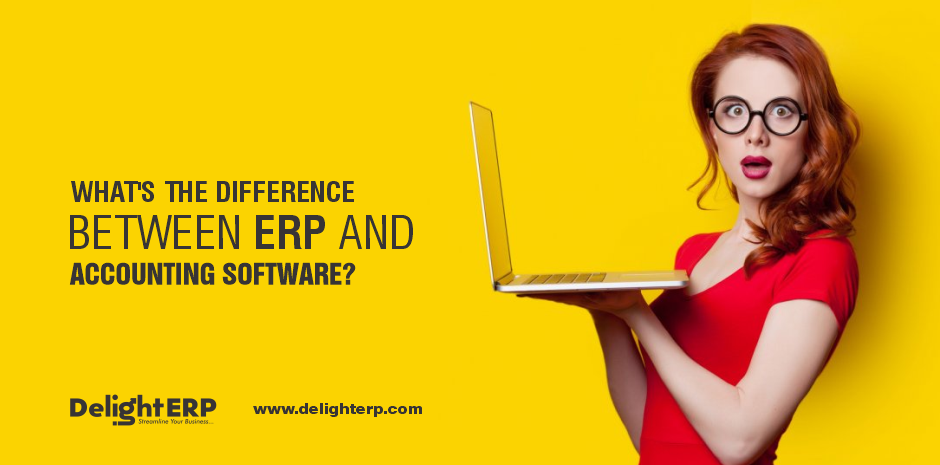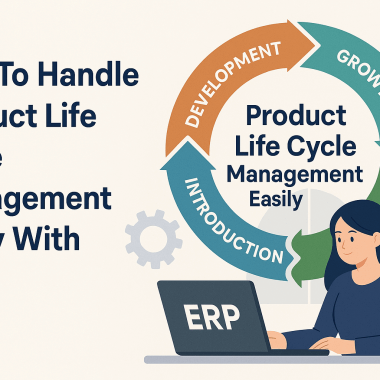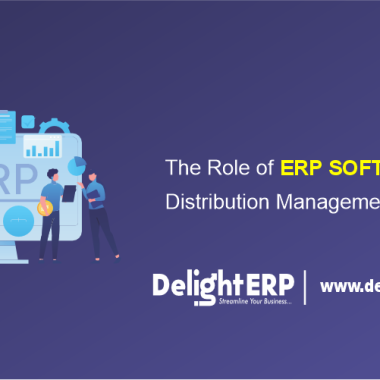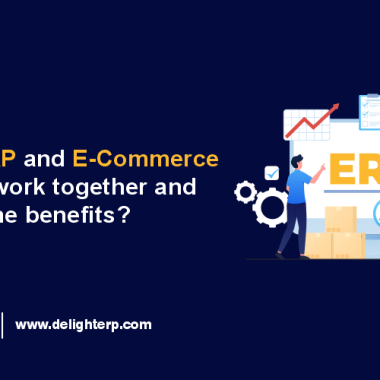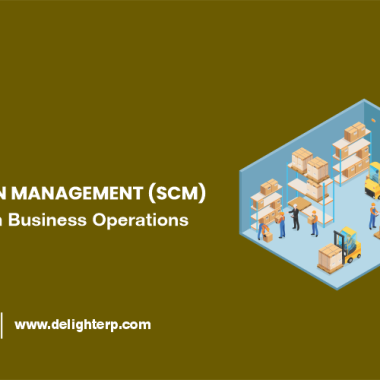Introduction
Companies and enterprises use a variety of applications to keep track of their workloads. There are a variety of solutions on the market that are utilized for different objectives. ERP (Enterprise Resource Planning) software assists in the management of all production processes, while accounting software assists in the management of accounts and finances.
When businesses wanted to implement software in their operations, they must be clear about the systems’ objective purpose.
Sometimes organizations develop software without thinking, and as a result, they are unable to obtain the right output that they expect related to the implementation.
When it comes to choosing between accounting software and ERP software, companies and businesses are often confused. However, there is no need to be concerned; businesses utilize the ERP system to handle their entire production process, while businesses use the accounting system to simply monitor their accounts.
What is ERP Software?
Companies and corporations utilize Enterprise Resource Planning to manage their workload. Businesses must keep track of several duties such as accounting, financing, tracking sales, maintaining production processes, time management, etc.
Different software is available on the market to assist businesses in maintaining their operations. However, it will take time if the firms use various tools to reduce their workloads.
By controlling several systems, the ERP system keeps track of all activities and assists organizations in saving time.
Companies or enterprises can monitor their production processes, manufacturing processes, accounts, raw materials, and other aspects of their operations using an enterprise resource planning system. They can also transmit the information to their other branches to keep them updated on the situation.
Businesses can perform a variety of jobs with the ERP system, including…
- Supply Chain Management
- Inventory tracking
- Customer Relationship Management
- E-Commerce
- Barcode Scanning
- Warehouse management, etc.
Businesses can manage their duties effectively and on schedule with the help of an enterprise resource planning system. Also, with the help of client data saved in the ERP system’s database, businesses may deliver the best customer care possible.
Recommended for you: What Is Production, Planning, Quality And Control?
Benefits of using the ERP software
Businesses are drawn to ERP software for several reasons.
1. Auto Generate Reports
Businesses create reports to examine their sales and production processes. The organizations modified their sales methods and raised their revenues thanks to the reports.
Before the implementation of ERP systems, businesses struggled to generate sales reports. However, when employing an enterprise resource planning system, sales reports are automatically generated on a weekly, monthly, or annual basis.
2. Customer service
The interaction between consumers and businesses provides numerous potentials for success. Consumers are drawn to businesses that give excellent customer service after or before making a purchase.
Customers’ data such as name, numbers, product name (which was purchased by the consumers) with the date is stored in the ERP system by the company’s sales team. This type of data helps in providing prompt customer support.
3. Maintain the Cash Flow
Positive cash flow demonstrates a company’s success or profitability in a competitive market. Almost all businesses may work on credit, which is natural. Companies must, however, make timely follow-ups after providing supplies on credit to complete the deal.
Consumers occasionally have a lot of work to perform, which is why they forget to finish their payments due. As a result, businesses send out payment reminders to their customers. The organization can easily keep track of and monitor cash flow with the help of ERP software.
4. SCM(Supply Chain Management)
The work of well-known manufacturing industries is well-known. When a manufacturer delivers a customer’s stuff within the specified time, the customer is satisfied. The manufacturer manages the production procedures to complete the work on time. With an ERP system, organizations can keep track of their entire manufacturing process and produce or deliver materials on time.
Also Read: What Is Supply Chain Management (SCM)?
5. Cost-effective
Using several applications to keep track of various duties is time-consuming and costly. Smaller companies and factories can use ERP software to reduce their workload by correctly maintaining tasks. Furthermore, Enterprise Resource Planning software is cost-effective because the firm only needs to maintain one software instance out of a large number.
What is Accounting Software?
The name of the accounting software defines what it does. Businesses and corporations must keep track of their financial records and accounts to comply with taxes and GST.
Companies can use accounting systems in the digital age to determine the total of a bill or invoice without making any errors, including all taxes. The accounting system can help small and large firms keep track of their finances and cash flow.
The firm can save all invoices or bills in the database with the help of accounting software. As a result, businesses can obtain invoices or bills from a specific client whenever they need them.
Accounting software can also be used by firms to manage their finances.
- Account Payable
- Account Receivable
- Invoicing
- Billing
- Financial Reports, etc.
A well-maintained account sheet helps companies or businesses in attracting investors’ or clients’ attention. An account sheet provides a snapshot of cash flow in a corporation or company, as well as assists the accounting system organization in maintaining their account sheet without error.
Benefits of using the accounting software
Accounting software benefits organizations and businesses in several ways.
1. E-Billing and E-Invoicing
Companies in the twenty-first century can use an accounting system to generate bills or invoices and send them to clients’ registered email addresses. As a result, there is no need to send printed copies of bills or invoices to clients. Additionally, businesses can save time by sending digital bills or invoices. Fraud and errors are less likely with e-billing and e-invoicing.
2. Maintain the Inventory
Inventory management is an essential part of the business. Businesses can use accounting software to maintain product descriptions, photos, package prices, and other information.
Companies can rapidly generate e-invoices or bills that include all applicable taxes in keeping with the orders. Businesses can keep their cash flow in check by receiving notice of the credit time deadline.
3. Analyzing the reports
The accounting system has capabilities that allow you to automatically generate reports about your finances and sales based on your records. Businesses can examine their sales progress and enhance their sales strategy with the help of reports.
The automatic creation feature saves time and effort for organizations and companies. Companies can make quick decisions in the market regarding sales and purchased raw materials.
4. Payment options
Clients or consumers can make payments using a variety of methods, including cash, internet banking, and a digital payment platform, among others. Companies can provide payment options to clients and build a good impression in the minds of customers by using accounting software.
If a customer chooses internet banking or online payment, the customer can quickly obtain the company’s banking information. Because the accounting system keeps track of a company’s or business’s banking information.
5. Tracking cost
The balance sheet of a business can store all of the data of purchases and sales. As a result, these records assist corporations or businesses in keeping track of their monthly costs or production costs. When a company’s account sheet shows that the sales ratio is expanding in parallel with the cost, profit does not improve. If businesses wish to raise their earnings, they must reduce their costs.
ERP software V/S. Accounting Software
Here are a few pointers to help you understand the differences between ERP and accounting software.
– Features Of the software
Accounting and ERP software each have their own set of functionality. The software’s features can make a major difference.
– Usage of the software
ERP software is used to keep track of a company’s or business’s workload, while an accounting system keeps track of the accounts.
– Requirements
Manufacturing requires software to maintain production operations, which is why they employed the ERP system. Accounting software is used by small and large enterprises or businesses to provide error-free invoices or bills.
You May like to read: Product Costing And Pricing Made Better With ERP
Conclusion
When it comes to starting to manufacture or sell products, every industry has a specific goal in mind. In today’s competitive market, companies and businesses desire a platform that allows them to make correct and rapid decisions. Accounting software and ERP software are both valuable to organizations in different ways. As a result, when selecting software, businesses must be clear about their expectations.

